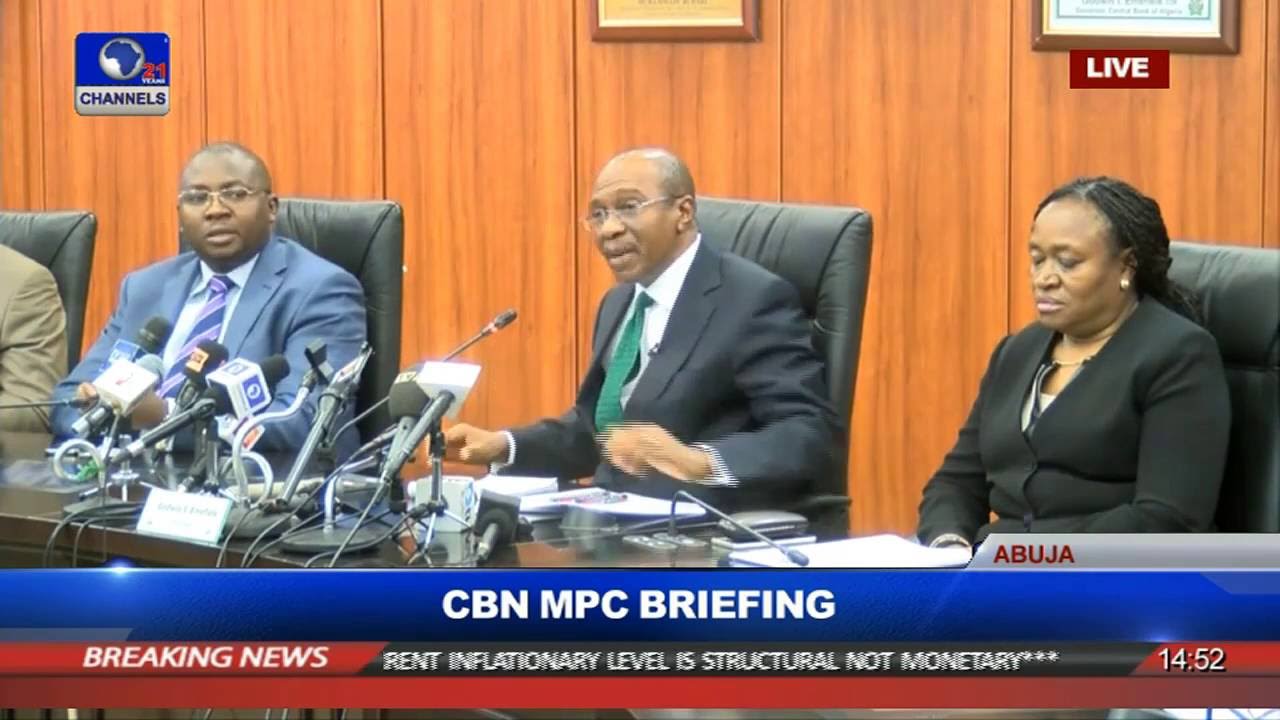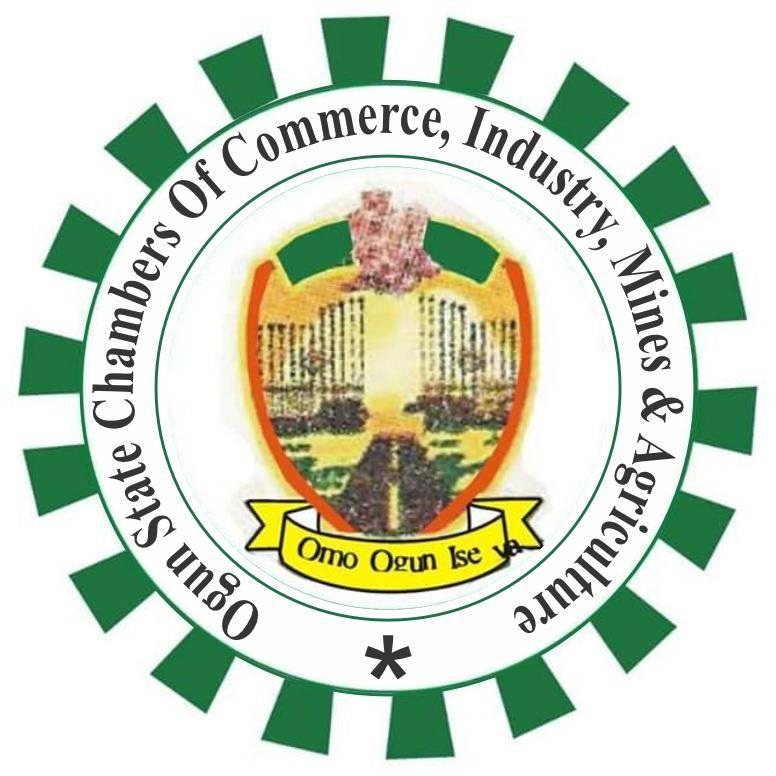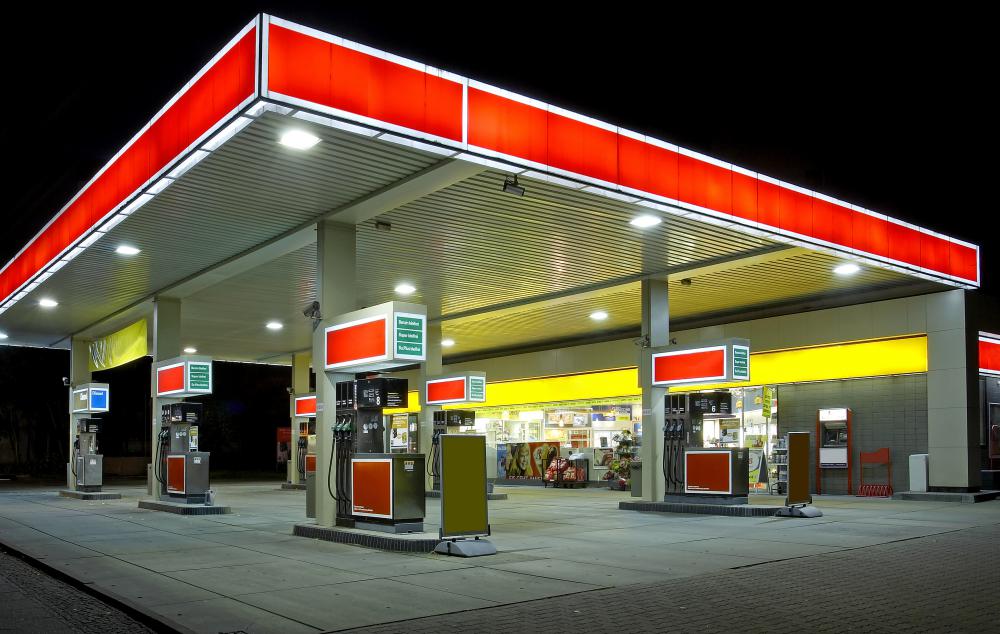Economy
Any Rate Cut by MPC Will Lead to Negative Real Yield—FSDH

By Modupe Gbadeyanka
Analysts at FSDH Research have warned that any attempt by the Monetary Policy Committee (MPC) to cut rate at its meeting next week will lead to a negative real yield, with a possible significant capital flight from Nigeria by foreign investors.
FSDH, in its latest report obtained by Business Post, said it expects the committee to still hold the rate at 14 percent.
Members of the MPC will meet next week and observers are keenly awaiting outcome of the meeting.
FSDH noted that the value of the Naira recorded a mixed performance but show relative stability since the last MPC meeting in July 2017.
The value of the Naira depreciated at the official market, while it closed unchanged at the parallel market.
The inter-bank market rate depreciated marginally by 0.07 percent to N305.95/$ on September 15, 2017 from N305.75/ $ on July 25, 2017.
The parallel market closed unchanged at N367/ $ on September 15, 2017 same as at July 25, 2017.
It said the premium between the inter-bank and parallel markets averaged about N61 after the last MPC meeting in July 2017 and September 15, 2017 from an average of N66 during the period between the MPC Meeting of May and July 2017 meeting.
“A rate cut will lead to a negative real yield, with a possible significant capital flight from Nigeria by foreign investors. Thus, a hold decision is appropriate,” the report said.
FSDH also noted that the yields on NTBs decreased in August 2017, compared with July 2017. At the NTBs auction, average yield on the 91-day was down at 13.82 percent in the month of August compared with 13.93 percent recorded in July 2017.
The average 182-Day NTB stood at 19.02 percent in August 2017, down from 19.11 percent in July 2017. The average 364-Day NTB yield also closed lower at 22.73 percent in August 2017, from 22.80 percent in July 2017.
“The yields on the FGN Bonds that we monitored closed higher in August 2017 over the preceding month. The average yield on the 16 percent FGN June 2019 increased to 16.84 percent in August from 16.62 percent in July.
The 16.39 percent FGN Jan 2022 closed at 16.33 percent in August 2017, marginally higher than 16.13 percent in July 2017; the 10 percent FGN Jan 2030 also closed at 16.43 percent in August 2017, higher than 16.12 percent in July 2017.
“We expect the yields on the fixed income securities to trend downward going forward. This is because of FX stability, plans of the FGN to refinance part of the local debt into foreign debt and the positive GDP growth rate expected going forward,” it said.
The report also said the monetary aggregates (narrow money and broad money) as at July 2017 show that the annualised growth rate in money supply is below the target that the CBN sets for the year 2017.
The broad money supply (M2) decreased by 5.08 percent to N22.20trn in July 2017 from N23.39trn in December 2016. This is lower than the CBN’s growth rate target of 10.29 percent for the year 2017.
The net domestic credit increased marginally by 1.92 percent to N27.16trn in July 2017 from N26.65trn in December 2016.
The annualised growth rate in the net domestic credit in July 2017 was 3.29 percent, below the target growth rate of 17.93 percent for 2017.
The net domestic credit to the Federal Government increased by 6.88 percent to N4.99trn in July 2017 from N4.67trn in December 2016. The net domestic credit to private sector also increased marginally by 0.87 percent to N22.17trn in July 2017 from N21.98trn in December 2016.
The CBN has maintained tight monetary policy to curb high inflation rate and ensure FX stability.
“Looking at the developments both in the domestic and international markets, a hold in rates at this meeting will be appropriate in order to sustain the current growth rate in the economy. However, the MPC may adjust the asymmetric corridor around the MPR to signify easing.
“Meanwhile, fiscal measures in the forms of tax relief and tariff adjustment are required to boost economic activities,” the report said.
Economy
Dangote Refinery is Game-Changer for Nigeria’s Economy—OGUNCCIMA

By Modupe Gbadeyanka
The Dangote Refinery located in the Lekki area of Lagos State has been described as a game-changer for Nigeria’s economy because of its significance to the country’s sustainable growth.
This was the view of the Ogun State Chamber of Commerce, Industry, Mines, and Agriculture (OGUNCCIMA) through its president, Mr Niyi Oshiyemi.
“The Dangote Refinery is a game-changer for Nigeria’s economy. With a capacity to refine 650,000 barrels of crude oil daily, it has reduced Nigeria’s reliance on imported petroleum products, conserved foreign exchange, and fortified our energy security.
“This milestone reinforces the critical role the private sector plays in national development,” Mr Oshinyemi said, noting that, “The refinery’s operations have created employment for Nigerians at all levels while fostering technology transfer and skills acquisition. This has strengthened local businesses and equipped them with the tools to compete in domestic and global markets.”
The emphasis on local content has been a cornerstone of Dangote Refinery’s strategy. By sourcing materials locally and partnering with indigenous companies, the refinery has supported the growth of Nigerian enterprises and encouraged investments in infrastructure, engineering, and technology.
The ripple effects of the Dangote Refinery extend beyond the energy sector. Its presence has catalyzed industrialization by attracting investments in related sectors such as petrochemicals, manufacturing, and transportation. This multiplier effect has significantly expanded Nigeria’s industrial base and enhanced the nation’s economic competitiveness.
“This refinery is a shining example of what can be achieved through visionary leadership and investment in strategic sectors. It demonstrates Africa’s potential to compete globally and foster regional integration,” Mr Oshiyemi remarked.
In addition to its economic contributions, Dangote Refinery has maintained a strong commitment to corporate social responsibility. The Dangote Group’s investments in education, healthcare, and infrastructure have improved the quality of life for many Nigerians and strengthened community resilience.
“Dangote Refinery exemplifies the role of private sector enterprises in driving social progress alongside economic development. Its initiatives in healthcare and education are building a brighter future for Nigerians,” the OGUNCCIMA chief noted.
He urged stakeholders across public and private sectors to emulate the Dangote Refinery’s innovative approach to development. By fostering partnerships and investing in transformative projects, Nigeria can achieve sustainable economic growth and reduce its reliance on external resources.
“This refinery stands as a model for what is possible when the private sector leads with vision and commitment. We call on all stakeholders to collaborate and replicate such success stories to build a resilient, self-reliant, and prosperous Nigeria,” Mr Oshiyemi concluded.
Economy
House of Reps Passes MTEF-FSP For 2025-2027

By Adedapo Adesanya
The House of Representatives on Wednesday passed the Medium-Term Expenditure Framework (MTEF) and Fiscal Strategy Paper (FSP) for the next three years (2025-2027).
In passing the MTEF, the lower chamber’s committees on Finance, Petroleum Upstream, and Petroleum Downstream were tasked to investigate reports from the Revenue Mobilization, Allocation, and Fiscal Responsibility Commission (RMAFC) alleging that the Nigerian National Petroleum Company (NNPC) Limited’s withheld N8.48 trillion as claimed subsidies for petrol.
Additionally, the investigation will address the Nigeria Extractive Industries Transparency Initiative (NEITI) report that claimed the NNPC failed to remit $2 billion (N3.6 trillion) in taxes to the federal government.
The committees were further directed to verify the total cumulative amount of unremitted revenue (under-recovery) from the sale of Premium Motor Spirit (PMS) by the NNPC between 2020 and 2023.
Some of the recommendations in the MTEF as adopted by the house are; that the projected oil benchmark prices are $75, $76.2 and $75.3 per barrel in 2025, 2026 and 2027, respectively.
Three-year projections for domestic crude oil production are 2.06 million barrels per day, 2.10 million barrels per day and 2.35 million barrels per day for the subsequent years of 2025, 2026 and 2027.
The country’s economic growth rate forecast, measured by the gross domestic product (GDP) was put at 4.6 per cent, 4.4 per cent and 5.5 per cent for the years 2025, 2026 and 2027, respectively.
Economy
Petrol Station Owners Lament N75 Price Difference Between PH, Dangote Refineries

By Adedapo Adesanya
The Petroleum Products Retail Outlets Owners Association of Nigeria (PETROAN) has said the price of Premium Motor Spirit, also known as petrol, being sold by the old Port Harcourt Refinery, which resumed production on Tuesday, is N75 per litre higher than that sold by the Dangote Refinery.
This was revealed by the association’s Public Relations Officer, Mr Joseph Obele, during the official reopening ceremony of the refinery, which is now operating at a capacity of 60,000 barrels per day.
Business Post reports that the lifting price of Dangote’s petrol product is N990 per litre. However, the refinery announced a N20 discount on Sunday, which is only available to marketers buying a minimum of 2 million litres of the fuel.
Mr Obele, a former chairman of the Independent Petroleum Marketers Association of Nigeria (IPMAN) at the Port Harcourt Deport who initially applauded the federal government for revitalising the old refinery, expressed concern over the pricing disparity between petrol supplied by the Nigerian National Petroleum Company (NNPC) Limited and the Dangote Refinery.
According to him, while Dangote Refinery sells petrol to marketers at N970 per litre, NNPC’s price stands at N1,045, a difference of N75 per litre.
He said the N75 price differential is a steep margin for businesses, particularly for an industry where profitability hinges on competitive pricing.
However, Mr Obele described the refinery’s restoration as a significant step in reducing Nigeria’s dependence on imported petroleum products.
He revealed that the Group Chief Executive Officer of NNPC Limited, Mr Mele Kyari, has promised to address the issue and harmonise prices to mitigate the impact on marketers and consumers.
The reopening of the Port Harcourt Refinery I is expected to enhance local production capacity and reduce reliance on imports, a move welcomed by stakeholders across the sector.
However, concerns over pricing disparities underscore the need for continuous reforms to stabilise the downstream sector of the petroleum industry.
The reopening has also sparked anticipation for the rehabilitation of other state-owned refineries including the second refinery in Port Harcourt as well as the Warri and Kaduna structures.
-

 Feature/OPED5 years ago
Feature/OPED5 years agoDavos was Different this year
-
Travel/Tourism8 years ago
Lagos Seals Western Lodge Hotel In Ikorodu
-

 Showbiz2 years ago
Showbiz2 years agoEstranged Lover Releases Videos of Empress Njamah Bathing
-

 Banking6 years ago
Banking6 years agoSort Codes of GTBank Branches in Nigeria
-

 Economy1 year ago
Economy1 year agoSubsidy Removal: CNG at N130 Per Litre Cheaper Than Petrol—IPMAN
-

 Banking2 years ago
Banking2 years agoFirst Bank Announces Planned Downtime
-

 Sports2 years ago
Sports2 years agoHighest Paid Nigerian Footballer – How Much Do Nigerian Footballers Earn
-

 Technology4 years ago
Technology4 years agoHow To Link Your MTN, Airtel, Glo, 9mobile Lines to NIN













